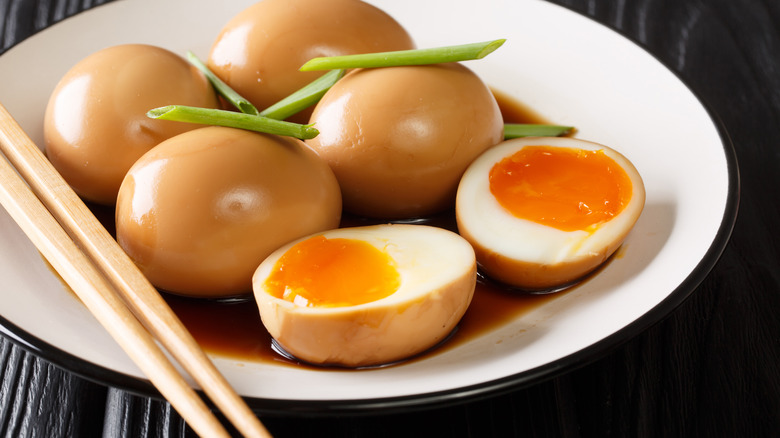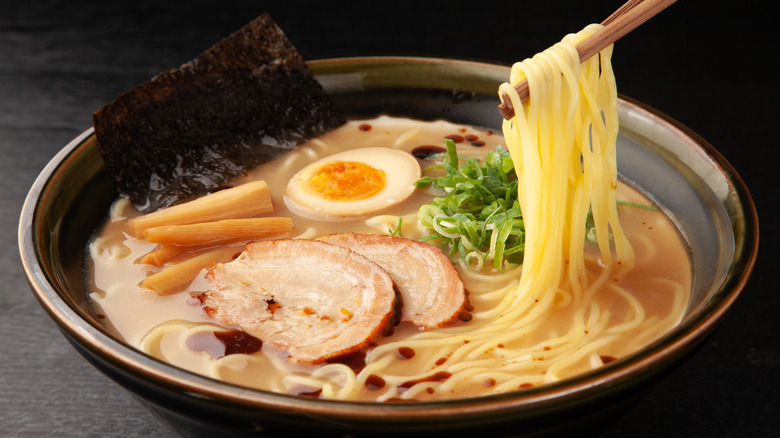The Key To Perfect Ramen Eggs Is Sweetened Soy Sauce
One of the best aspects of a warm bowl of ramen is the ability to completely customize it. Some of the most common toppings for the Japanese noodle dish include sliced pork, fish cake, shrimp, seaweed, mushrooms, and more.
Ramen eggs, also known as ajitsuke tamago, or ajitama, are another popular topping for the dish. Although at first glance these eggs may seem to be just your ordinary soft-boiled eggs, they actually have a distinct flavor from being marinated that makes them the perfect companion to ramen dishes (of course, you can still enjoy them on their own as a side snack, in a sandwich, or on top of a salad).
Although these eggs can typically be added in to your dish when you dine at a ramen shop, they are easy to make at home as a less expensive alternative. However, they do require a little bit of planning ahead. The key to making the best ajitama is to marinate your eggs overnight ahead of making the dish.
Let the eggs marinate overnight for maximum flavor
A recipe shared by Food Network shows how to concoct the perfect marinade the next time you try your hand at making some homemade ajitama. Once you've soft-boiled your eggs, place them in an ice bath to cool down. This will stop the cooking process, ensuring that they are ready for marination and the yolks are perfectly custardy.
The key ingredient in making ramen eggs is this soy sauce mixture that seasons them. Food Network recommends combining 3 tablespoons plus a teaspoon each of mirin, sake, and soy sauce (though you can also swap in tamari). Then, add a tablespoon of sugar and a tablespoon of vinegar. Remove the eggs from the ice bath, and allow them to marinate for a full day. Just be sure not to leave them in the marinade for too long — after two days, they could become overly salty.
Once your ajitama are ready, slice them up or toss them in whole and serve them up alongside your ramen noodles, warm broth, and other preferred toppings.
A variety of flavors is perfect for this mix
Although it may seem strange to add a little sweetness to the salty mix, the added sugar can actually help the marinade develop more complex flavors, which will then be absorbed by the eggs. Plus, the added amino acids from the sake will add a little extra sweetness and umami flavor. You may want to boil and cook the marinade to burn off the alcohol, leaving only the actual flavors of the sake.
Although soy sauce-based marinade is the most commonly used when making ajitama, that doesn't mean you can't shake things up in the kitchen. When you're in the mood to get a little more inventive, you can put your own spin on the recipe and test out adding different herbs, spices, and sauces to the mix.
If you're looking for inspiration for your next meal, you might try your hand at some grilled chicken ramen or seared tuna ramen with miso broth.


